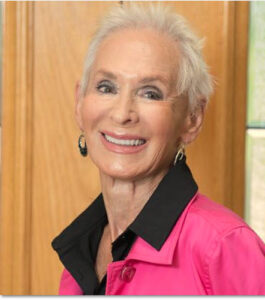Advice For Young Retirees

During the Depression of the 1930s, an Irving Berlin tune with the lyrics “Everybody’s doin’ it, doin’ it, doin’ it” was popular. I don’t know what everybody was doin,’ but it had a happy sound that made you feel better about tough times.
Fast-forward to the present and the lyrics are still relevant: Everybody’s doin’ it, doin’ it, doin,’ it, and what are they doin’? They are retiring.
When Social Security went into effect, no one could envision the many ways government-sponsored retirement would affect future generations. A joint study by Washington and Cornell Universities concluded that 64 percent of retirees depend on Social Security for half or more of their income; 29 percent rely on it for 90 percent of their income; 18 percent rely on it for all their income. Researchers also say that by age 75, nearly a quarter of those elders will have experienced poverty, and the percentage rises as one ages.
Poverty in retirement is not just a statistic; it’s a grim reality. As a pharmacist in a supermarket pharmacy, I dealt with retirees every day and what I saw, experienced, and was told by them, confirmed they were not living in luxury. With unlimited time on their hands to grocery shop, they cruised the aisles, hunched over their shopping carts, carefully looking for the best deals of the day. What they invariably choose were inexpensive, low-nutrition but filling edibles – macaroni and cheese, processed meals in a box, processed cereal products, high fat processed meat products, and white bread.
Whatever they could find in the day-old section of the bakery and produce departments was a plus. Would they buy a bottle of inexpensive multi-vitamins? On a tight budget, supplements were a luxury, and besides, the doctor who doesn’t know squat about nutrition, said they are a waste of money if you eat a well balanced diet. They were sure they ate a well balanced diet. I forgot to mention — regardless of whatever else they purchased, a bottle of Jack Daniels and a couple of bottle of wine were a “must”.
Everybody has the right to a personal lifestyle choice. But many people retire simply because it’s the expected thing to do. They don’t think about an alternative to retirement, and they don’t give a thought to how they will fill time or in what circumstances they will live during a longer lifespan.
Age 70 and beyond can be some of the most productive years of your life. Instead of incarceration in a nursing home or living a regimented life in a senior facility, you can and should be using your accumulated knowledge and wisdom to fuel a new career and new life. Working for others or having your own business can ensure a more youthful lifestyle that will keep you healthy, growing, energized and connected. As a bonus, rather than being financially dependent on the government, friends, neighbors, or your children who have responsibilities of their own, you will have freedom and power traditionally enjoyed only by the young.
Rules for the good life after sixty-five
What goes into creating an unprecedented new beginning when traditionally, you should be hitting the skids? Here are some simple rules that work if you put them to work:
- Start by age 40 if possible. Health is your most important possession. To get it and keep it, educate yourself about nutrition, dietary supplements and healthy lifestyle choices. If you have been less than kind to yourself over the years, your body can be incredibly forgiving when you start treating it right.
- Believe it’s possible to control the aging process. Just as the earth is not flat, decline is not inevitable. David A. Sinclair, PhD, writing in his new book, Lifespan, “Why We Age — and Why We Don’t Have To claims that the decline that is attributed to passage of time, is in fact, a curable disease.
So, how do you cure that “curable disease”? Don’t talk about it. Just do it.
- Visualize your future and commit to making it happen.
- Engage in rigorous mental management. Stop negative self-talk (“I’m too old to do that,” “I’m having a senior moment”) and do not indulge in self-deprecating remarks about your age, abilities or circumstances. Filter out disparaging comments of others. Frequent negative messages inhibit personal growth and prevent the formation of new ideas for your future.
- A hallmark of oldness is fear of change and inability to accept new ideas. Associate with younger people to see life through fresh, adventurous eyes. If you live in a retirement community, you do not have to live how neighbors live.
- Monitor how you are changing over time and work to hold on to youthful attributes such as mental and physical strength and flexibility.
- We learn to get old by listening to and observing old people, so critically think about how they shape your attitudes about aging.
You have the power to control your aging process if you do not to give in to total leisure living in retirement. Choose to live in a state of vibrant, seamless, evolutionary growth. Enjoy the thrill of cheating Mother Time out of at least 20 years by getting to 70 and beyond and feeling and functioning like a healthy 40 or 50 year old. It’s an incredible payoff for valuing yourself and your life. Be in that growing number of happy, healthy, productive older people who are doin’ it: bypassing traditional leisure oriented retirement and reveling in a healthy, productive fulfilling second life. The rewards are just too outstanding to pass up.
Barbara Morris, R.Ph.
P.O. Box 8345
Surprise, AZ 85388
contactnewsdesk@gmail.com
760-520-5202
source http://www.expertclick.com/NewsRelease/Advice-For-Young-Retirees,2024307949.aspx
Comments
Post a Comment